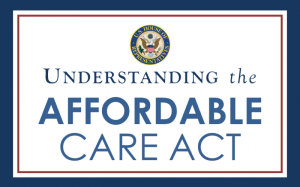Understanding Obamacare’s Hardship Exemption

9 million individuals have signed up for health insurance as mandated by the Patient Protection and Affordable Care Act of 2010 (PPACA). Also referred to as the ACA or Obamacare, the law requires all Americans to purchase or be covered under a plan of insurance for healthcare by March 31, 2014. Failure to obtain coverage by this date results in a penalty that will be assessed on your 2014 tax return.
Problems with the operation of the website used for enrollments resulted in an expansion of the hardship exemption to individuals whose health insurance plans were cancelled. The exemption allows certain individuals to bypass the requirement for insurance coverage under extraordinary circumstances or hardship. It is important to understand both the individual mandate and hardship exemption and how it may affect your requirement to purchase health insurance under the ACA.
About the Individual Mandate
The individual mandate was created as a penalty to induce those individuals who otherwise qualified for health insurance to become enrolled in a plan of coverage. If a person is not otherwise exempt from the requirement to purchase health insurance they are subject to a non-compliance penalty beginning this year. The amount of the penalty is the greater of $95 or 1% of your taxable income in 2013. For example, if your taxable income in 2013 was $40,000, the penalty amount you would be assessed for not having health insurance would be $400. However, this penalty can grow to over $2000 per family by 2016.
Basic Exemptions from Affordable Care Act Requirements
The individual mandate to purchase health insurance applies to nearly all Americans. Those not required to enroll in an individual plan of coverage before the deadline under the ACA include the following:
- those who are currently insured;
- individuals covered by either Medicare, Medicaid or state sponsored health insurance plan;
- veteran health or TRICARE plan participants;
- individuals who are permitted to claim a religious exemption;
- persons who are undocumented and living in the United States;
- individuals who are incarcerated;
- Native American tribe members; and
- those with individual income of $10,000 or household income of $20,000 in 2013 or where health insurance premiums represent 8% or more of their income.
Hardship Exemptions for the Individual Mandate
The hardship exemption, as explained in the ACA, is provided for those individuals who may not meet the requirements of the basic exemptions enumerated in the law. There are 14 different categories available for individuals looking to claim a hardship exemption from the individual mandate penalty imposed under the law.
These categories include: (1) homelessness; (2) notice of eviction or foreclosure within the six month period prior to January 1, 2014; (3) utility shut-off notice; (4) victim of domestic violence; (5) death of a close family member; (6) property damage due to a natural or human caused disaster; (7) a bankruptcy filing; (8) accrued medical expenses for at least 2 years; (9) an increase in expense related to the care of a family member who is ill, disabled or aging; (10) claiming a dependent child denied CHIP or Medicaid and subject of a court order for someone else to pay medical support for the child; (11) eligibility appeals decision for coverage; (12) reside in a state that did not expand Medicaid eligibility under ACA; (13) cancelled insurance coverage; and, (14) other hardship.
Qualifying for a hardship requires the filing of an application and the provision of certain supporting documents as required for the numbered hardship exemption. Once approved, a hardship exemption certificate number will be issued that must be placed on your tax return in order to waive the individual mandate penalty.
For more information relating to the health care exchanges, please contact R&G Brenner’s insurance division at healthcare@rgbrenner.com.





